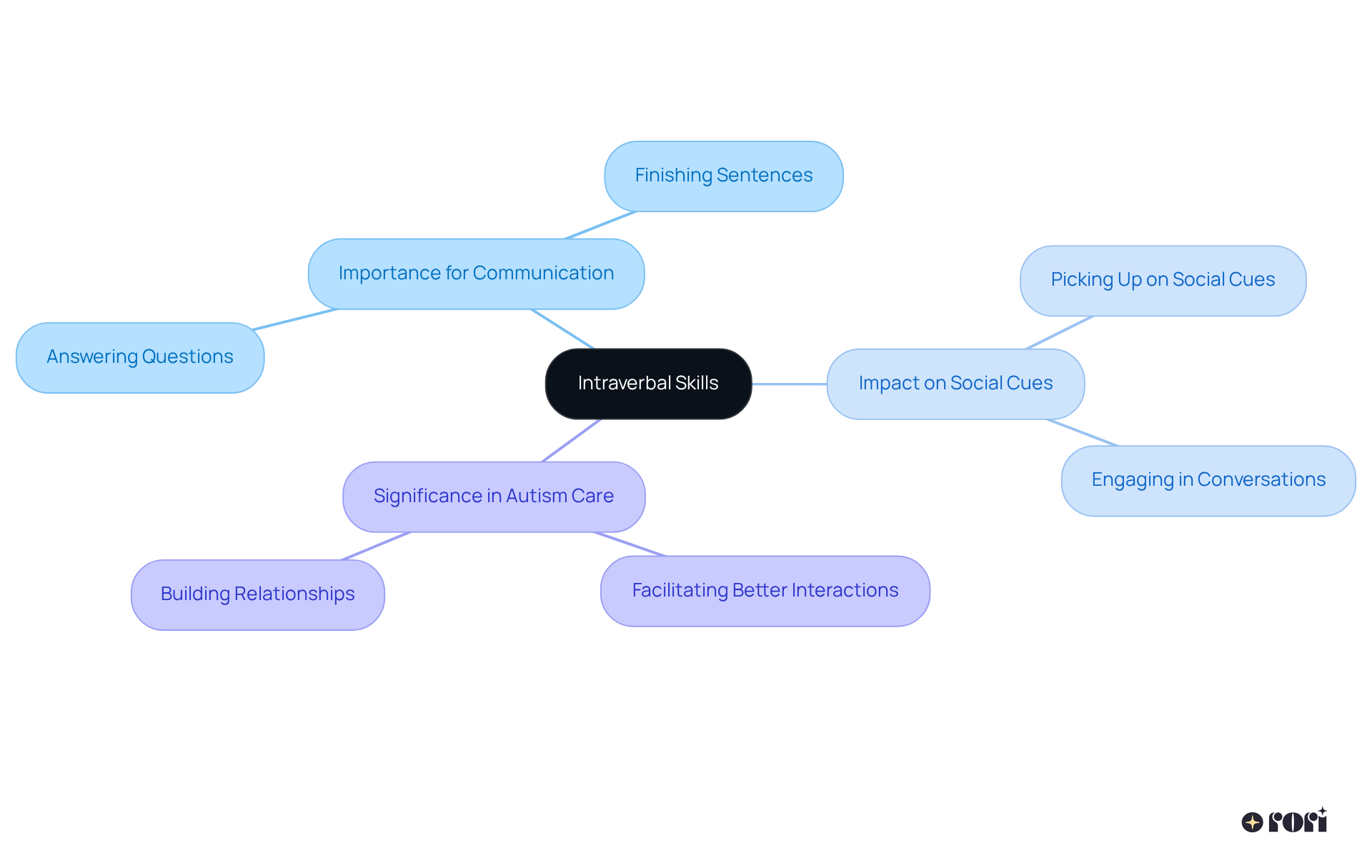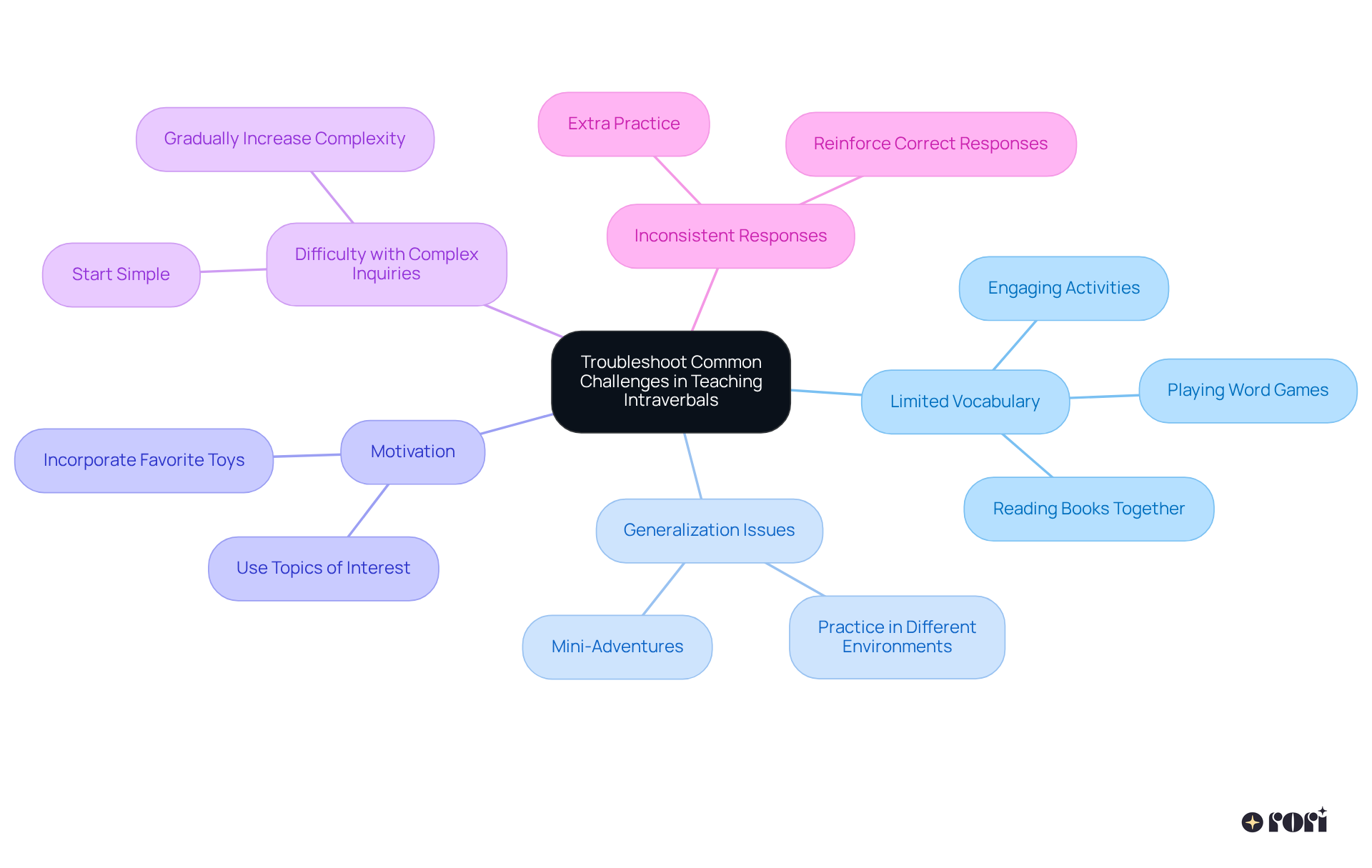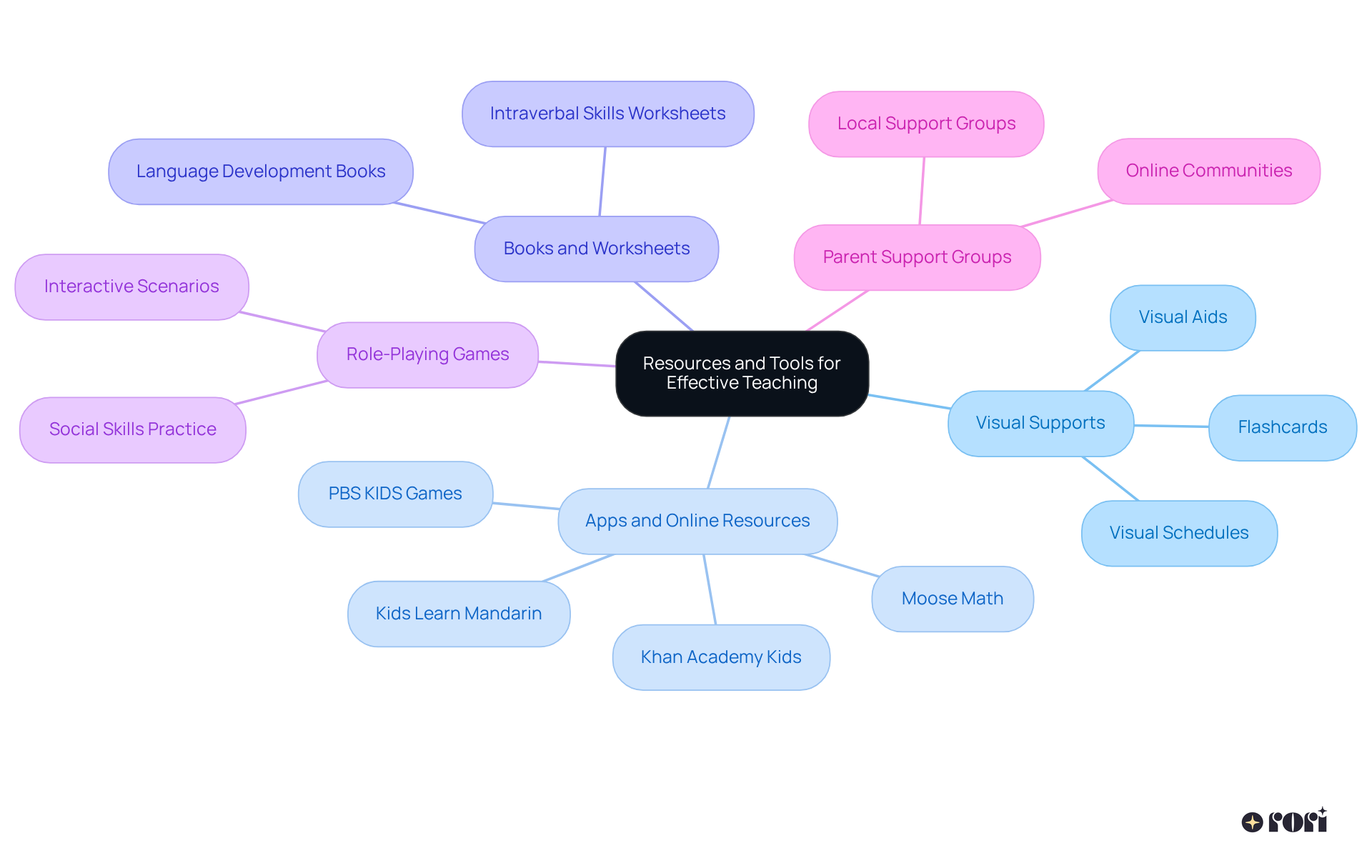This article offers a friendly step-by-step guide for parents looking to teach intraverbal skills—an essential part of effective communication and social interaction, especially for children with autism. 🌟 It starts with the basics, emphasizing familiar phrases and the use of WH-questions, making it relatable and easy to follow. Plus, incorporating practice into daily routines can make a big difference!
Research shows that improving intraverbal skills can significantly enhance a child's quality of life and strengthen social connections. By starting with what your child knows and gradually building from there, you can create a supportive environment for learning. Let’s explore this together and see how these small steps can lead to meaningful changes in your child’s communication journey!
Intraverbal skills are the backbone of effective communication, enabling meaningful conversations without visual cues. These abilities are especially important for children, particularly those on the autism spectrum, as they help foster social interactions and deepen emotional connections. Many parents might wonder: how can they teach these essential skills to their children?
This article offers a step-by-step guide that not only demystifies the process but also equips you with practical strategies to nurture your child's intraverbal development. Let’s explore this together and discover how you can make a difference in your child's communication journey!
Intraverbal abilities are all about the knack for responding verbally to what others say, without needing visual cues. Think about it: answering questions, finishing sentences, and having those back-and-forth conversations. These skills, known as intraverbal skills, are super important for effective communication and social interaction, helping young people express themselves and connect meaningfully with others. 🌟
When we nurture intraverbal skills, we can really boost a young person's ability to chat, pick up on social cues, and build relationships. This focus on intraverbal skills is especially crucial in autism care and education, as it facilitates better interactions. So, let’s explore this together and see how we can support our kids in developing these essential skills!

Recognizing the contextual importance, it’s essential to note that around 25% to 30% of youth with Autism Spectrum Disorder (ASD) are minimally verbal, which highlights the significance of teaching intraverbal skills. Research indicates that effective communication is crucial for relationships, academic performance, and community participation. Rori Behavioral Innovations Inc. is dedicated to offering resources and assistance for families facing these challenges, ensuring that parents have the tools necessary to promote their child's communication development. As emphasized in recent research, addressing the unique needs of minimally verbal individuals can significantly impact their overall quality of life.



Intraverbal skills are so important for nurturing effective communication and social interactions! By focusing on these abilities, parents can really boost their children's capacity to engage in meaningful conversations, express themselves, and connect with others. This guide has shared practical steps and strategies to help parents nurture these essential skills, making sure children are better equipped for social engagement and academic success.
We’ve provided a comprehensive approach to teaching intraverbal skills, starting with familiar phrases and gradually introducing more complex questions. Key techniques like modeling responses, using prompts, and reinforcing positive behavior are highlighted as critical components in this learning journey. Plus, by addressing common challenges—like limited vocabulary and generalization issues—parents can adapt their teaching methods to fit their child's unique needs.
Ultimately, the importance of intraverbal skills goes beyond just verbal communication; they lay the groundwork for developing relationships and participating in community life. By actively engaging in the suggested activities and utilizing available resources, parents can play a vital role in their child's communication development. Embracing this journey not only enhances their child's abilities but also enriches family interactions and supports overall well-being. Let’s explore this together and make this journey a fulfilling one!
What are intraverbal skills?
Intraverbal skills refer to the ability to respond verbally to others without needing visual cues, such as answering questions, finishing sentences, and engaging in conversations.
Why are intraverbal skills important?
Intraverbal skills are essential for effective communication and social interaction, enabling young people to express themselves and connect meaningfully with others.
How do intraverbal skills benefit young people?
Nurturing intraverbal skills enhances a young person's ability to engage in conversations, understand social cues, and build relationships.
In what context is the focus on intraverbal skills particularly crucial?
The focus on intraverbal skills is especially important in autism care and education, as it helps facilitate better interactions for individuals on the autism spectrum.